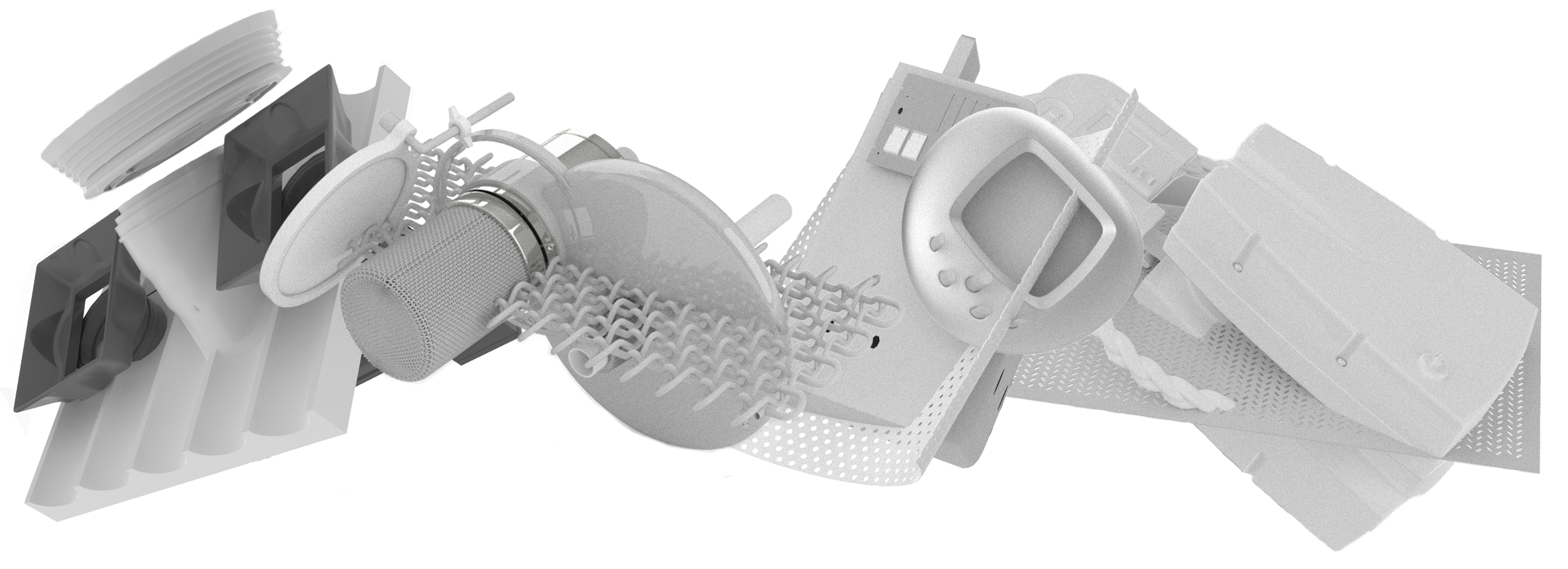Andrew Roberts, Brian Mackern, Tania Aedo
Moderator: Sol Henaro
What is it we preserve? Files, memories, heritage, figures? Through these questions, the participants will discuss preservation and its relationship with their own projects and artistic practices.
They will share the strategies that they have followed in the present day as well as during the emergence of the so-called new technologies in the nineties. The speakers will place special emphasis on the challenges they have faced in the recovery, preservation and diffusion of these early digital art and media practices.

At the center of my family history, there is a coincidence originating in war. In 1968, while my maternal grandfather, Pedro Barrios, worked manufacturing bullets for Remington on the outskirts of Cuernavaca, my paternal grandfather, Samuel Roberts, was fighting in the Vietnam War, using weaponry made by the same company. Decades later, my maternal grandfather lost his factory in a fire sparked by explosive chemicals and my paternal grandfather—in mental decline due to his years as a soldier—burned down his house in a failed attempt to kill his family. My maternal grandfather eventually rebuilt his factory in Tijuana, where it now manufactures mechanical parts for U.S. Air Force planes, while my paternal grandfather spent the rest of his life in a veterans’ home. Arms Manifesto is based on the story of my grandfathers as parallel figures in the arms industry—the manufacturer and the executor, the engineer and the soldier—to investigate, dismantle and critically analyze the larger narrative of war, penetrated and reconstructed by personal accounts in a complex lattice of affective relationships, mental health policies, labor-driven migration, war technologies and the cross-border market.

Mackern directs the project AR(t)CHIVES, which has recovered net.art pieces from the nineties, including Loop (1999) by Alejandro Sequeira, sitios by Alcides Martinez Portillo (1995-2000) and his own pieces, among others. His last reconstruction was Epithelia (1999) by the Argentinean artist Mariela Yeregui, an emblematic piece that had been lost, which was exhibited alongside an important piece by Mackern, the Netart Latino Database (1999-2004), at the New Museum in New York in an anthology of net.art pieces curated by Rhizome titled The Art Happens Here: Net Art’s Archival Poetics (2019). http://netart.org.uy/.

Abstract: With the idea of reflecting on the role of curation in memory at the intersections between art, science and technology, Tania Aedo will provide an unboxing and guided tour for two projects consisting of a book, an exhibition and a digital archive: (Ready) Media: Toward an Archaeology of the Media and Invention in Mexico (2010) and Ways of Hearing: A Heterophony on Art and Sound in Mexico (2019).


